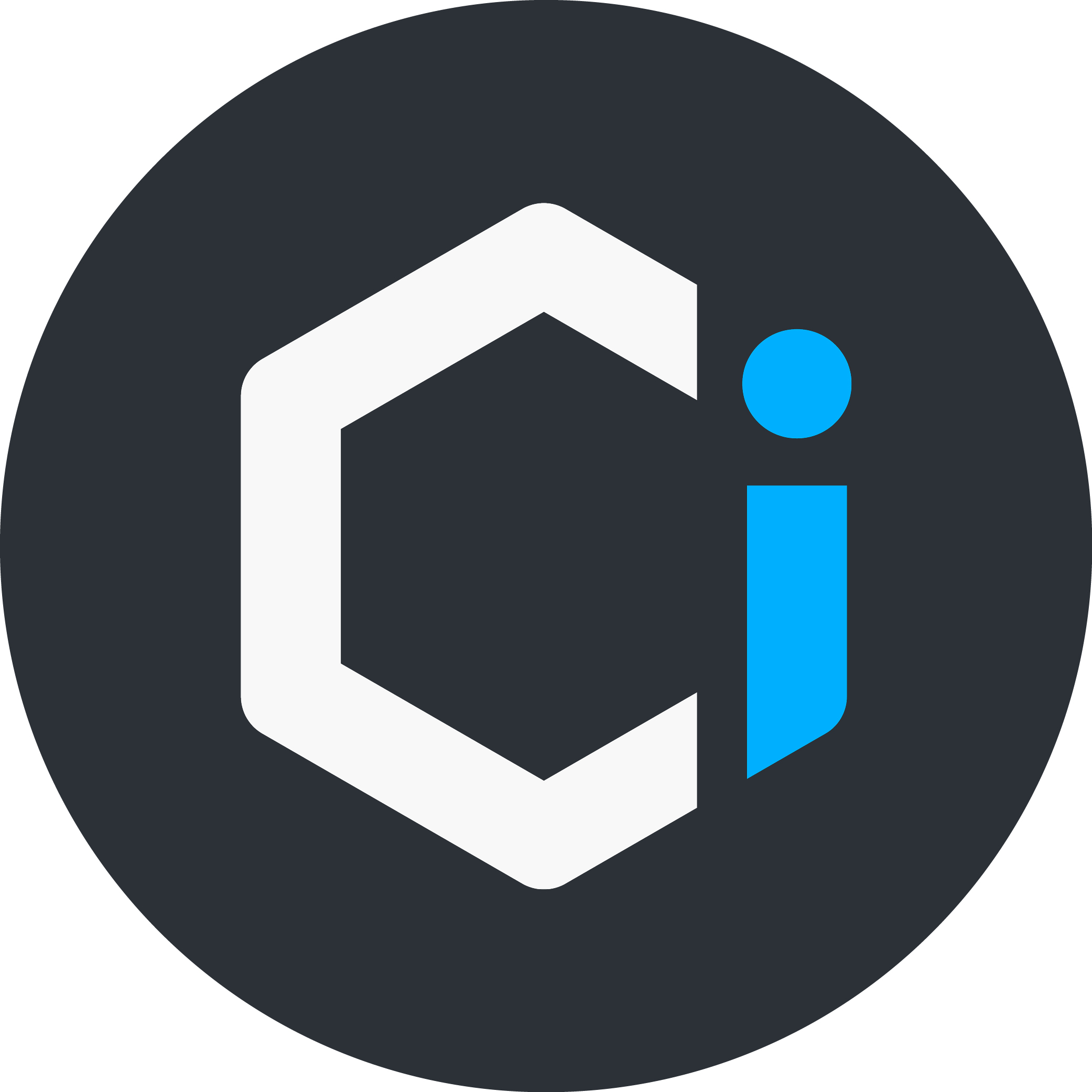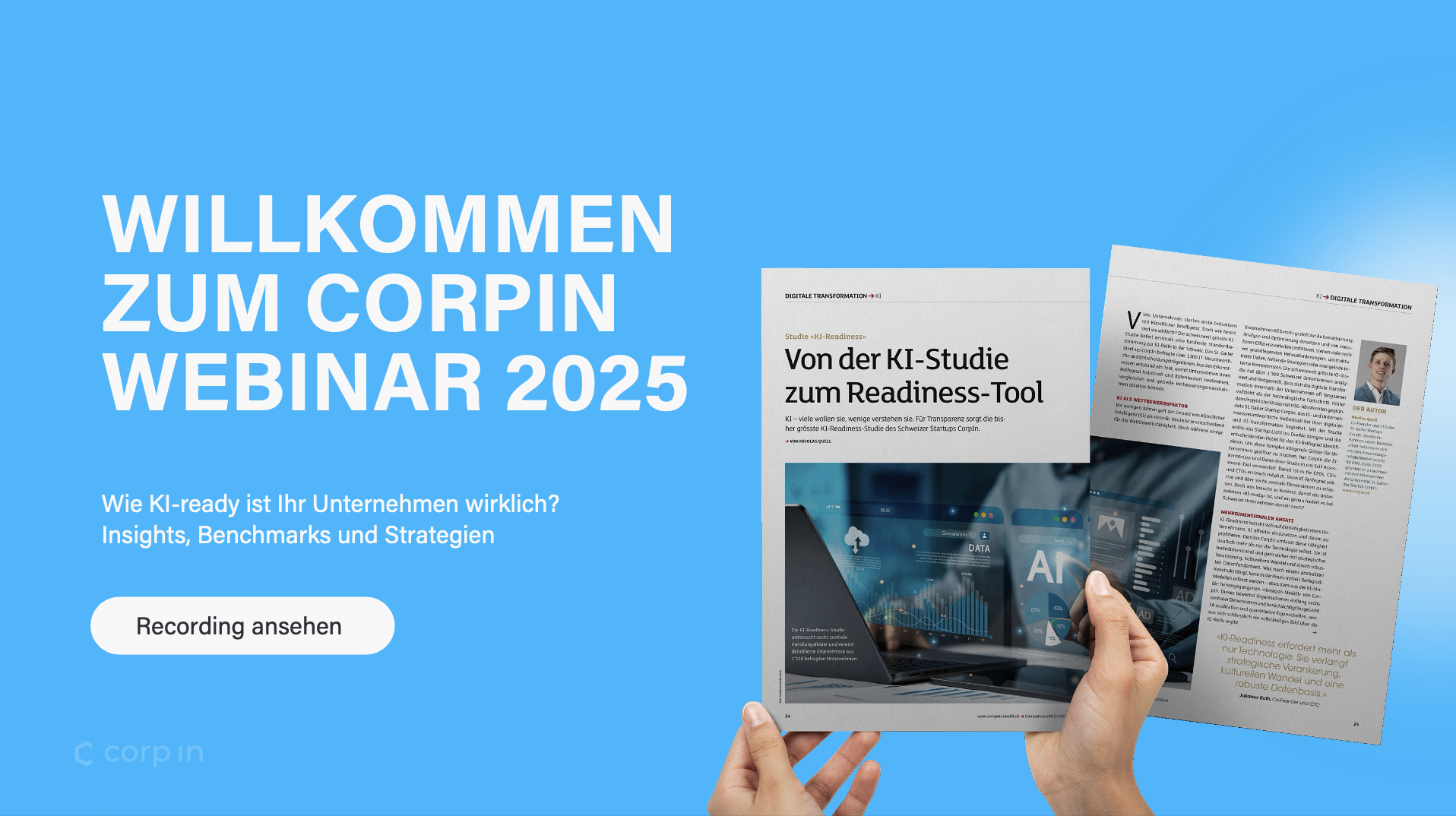From intuition to data culture: the roadmap for managers to a data-driven organization

Authored by

May 31, 2025
In an increasingly complex and competitive business world, an entrepreneur's gut feeling alone is often no longer enough. Decisions that were successful yesterday on the basis of experience and intuition now require a solid foundation: data. Digital transformation with AI is no longer just a buzzword, but a strategic necessity. For managers in Germany, Austria and Switzerland, the question is therefore no longer whether to rely on data, but how to successfully shape the transformation from a traditional to a data-driven organization.
This change is one of the greatest challenges of our time, but also one of the greatest opportunities. Companies that establish a genuine data culture are more agile, efficient and innovative. They can predict customer needs more precisely, optimize processes and develop new business models. But how can this step be achieved? How do you lead an organization away from isolated data silos and towards a culture in which data-based insights form the basis for strategic decisions?
This article serves as your roadmap. Based on the in-depth findings from our Swiss AI Report 2025for which we surveyed over 1,300 companies, we will show you the hurdles most companies face and the steps you need to take as a manager to establish a sustainable data culture and thus the basis for the successful use of artificial intelligence in the company in the company.
Why gut feeling is no longer enough: the new reality for companies
The markets in the DACH region are characterized by high cost pressure and intense competition. At the same time, technological leaps create constant pressure to innovate. In this environment, the ability to make quick and well-founded decisions is a decisive competitive advantage.
Intuition is and remains a valuable asset based on years of experience. But it has its limits, especially when it comes to recognizing complex patterns in large amounts of data or making precise predictions. This is where data culture comes into play. A data-driven organization does not rely solely on assumptions, but uses facts to test hypotheses, minimize risks and validate opportunities.
Our study clearly shows that companies that are already using AI are hoping above all for greater efficiency and productivity. But the road to achieving this is often rocky. The biggest challenges are not always of a technological nature, but lie in strategy, culture and internal skills.
The foundation must be in place: No AI without data
Before we talk about complex AI solutions for companies, we need to talk about the foundation: the data itself. Many managers believe their data is clean and solid. The reality is often different. Our AI Report shows that over a third of companies struggle with heterogeneous data structures and isolated data silos.
Typical problems that prevent a data culture:
- Data silos: Departments such as sales, marketing and production work with their own systems that do not communicate with each other. Valuable data remains unused because it is not available across departments.
- Inconsistent data quality: Missing, outdated or incorrect data leads to incorrect analyses and undermines confidence in data-based decisions.
- Lack of access rights: Unclear authorization concepts mean that employees either cannot access the data they need or - which is a security concern - have too many access rights.
A professional AI consulting therefore almost always begins with an analysis of the data foundation. Without a consistent, high-quality and accessible database, any investment in artificial intelligence is doomed to failure.
Your 5-step roadmap to a data-driven organization
Building a data culture is a marathon, not a sprint. It requires strategic planning, clear communication and the right tools. The following five steps, derived from our CorpIn Hexagon frameworkprovide you with a proven structure for this transformation process.
Step 1: Anchoring the AI strategy in top management
The change to a data culture must start at the top. AI is not an IT project that is delegated to a department, but a central pillar of the corporate strategy. Nevertheless, our study shows that only 26% of companies have anchored AI as a central component of their long-term strategy.
Your tasks as a manager:
- Define clear goals: What do you want to achieve with data and AI? Is it about AI process optimization, the development of new services or improving the customer experience through predictive maintenance?
- Create commitment: Ensure that top management not only approves the AI strategy, but actively promotes it and provides the necessary resources.
- Measure success: Define clear key performance indicators (KPIs) to measure the progress and return on investment of your initiatives. Surprisingly, over half of companies do not currently use KPIs to measure the success of their AI projects.
Step 2: Actively shape cultural change and get employees on board
Even the best technology is useless if employees don't embrace it. Fears of job loss or skepticism towards new, complex systems are real hurdles. Our data shows a mixed picture: While just under 40% of employees are positive about AI, almost half are undecided or skeptical.
Your tasks as a manager:
- Communicate transparently: explain the "why" behind the transformation. Point out how AI solutions relieve employees and do not replace them - for example, when automating repetitive tasks in AI in knowledge management.
- Reduce fears: Establish feedback channels and create space for open discussions.
- Invest in training: Targeted AI workshops for companies are an excellent way to break down fears and create a basic understanding of the technology. At CorpIn, we offer practical workshops that show how ChatGPT, for example, can be used in the company to increase productivity.
Step 3: Build internal competencies (Awareness & Competence)
One of the biggest challenges for companies is the lack of qualified specialists. Almost 40% of the companies we surveyed have neither internal nor external AI specialists.
Your tasks as a manager:
- Carry out a skills analysis: Where do you stand today? What skills will you need tomorrow?
- Create learning opportunities: Encourage further training for your existing teams and create incentives to engage with new technologies.
- Get external expertise: Working with an external partner like CorpIn can be crucial, especially at the beginning. We not only help you with the technology, but also with anchoring the necessary knowledge in your organization.
Step 4: Overcoming technical and procedural hurdles
A fragmented IT landscape is often a brake on digital transformation. The integration of AI into existing systems is cited by companies as one of the top challenges.
Your tasks as a manager:
- Prioritize harmonization: Focus on the modernization and integration of your core systems (ERP, CRM).
- Think in terms of processes: Identify key processes that could benefit most from AI process optimization or intelligent automation. These are often administrative activities, data processing or customer service.
- Start with manageable projects: Start with a clearly defined use case in order to achieve quick success and learn from it.
Step 5: Treat security and trust as a top priority
Awareness of data protection and security is particularly high in the DACH region. Responsible handling of data is not a "nice-to-have", but a basic prerequisite for the acceptance of AI solutions.
Your tasks as a manager:
- Establish clear guidelines: Ensure GDPR compliance and create binding guidelines for dealing with AI systems.
- Rely on recognized standards: Use certifications such as ISO/IEC 27001 as a guide to ensure a high level of security.
- Promote ethical awareness: Train your employees to deal with potential risks such as bias or "hallucinations" of AI models.
Where do you stand? Measure your AI maturity level
Implementing these steps is a complex task. This makes it all the more important to take a clear position. Where does your company really stand on the road to data culture?
To stop leaving this question to gut feeling, we at CorpIn have developed the CorpIn Hexagon platform platform. Based on our science-based AI maturity model, this self-assessment tool allows you to evaluate your organization along the six key dimensions of AI excellence:
- Data foundation
- Strategic objective
- Cultural dimension
- Technical requirements
- Security & Privacy
- Awareness & competence
You not only receive an overall score, but also an objective benchmarking compared to over 1,300 other Swiss companies. This allows you to recognize your strengths and uncover specific areas for action.
Conclusion: From intuition to excellence with the right strategy
The path from intuition to data culture is an entrepreneurial journey that requires courage, foresight and a clear plan. It is about harmonizing technology, strategy and people. Managers who actively shape this change not only lay the foundations for artificial intelligence in the company, but also ensure the competitiveness and future viability of their entire organization.
The transformation is complex, but you don't have to tackle it alone. At CorpIn, we see ourselves as your strategic partner, combining business knowledge with in-depth AI expertise. We accompany you from the initial analysis to targeted AI workshops to the development of customized AI solutions.
Are you ready to take the next step?
- Would you like to discuss your challenges directly with us? Book a non-binding introductory meeting and let's talk about your goals together.
- Want more in-depth insights? Download our Swiss AI Report 2025 or listen to our podcast in.
Start setting the course for a data-driven future today. It is the most important decision you can make for your company.
The content of this article may have been improved with the help of artificial intelligence. Therefore, we cannot guarantee that all information is complete and error-free.




